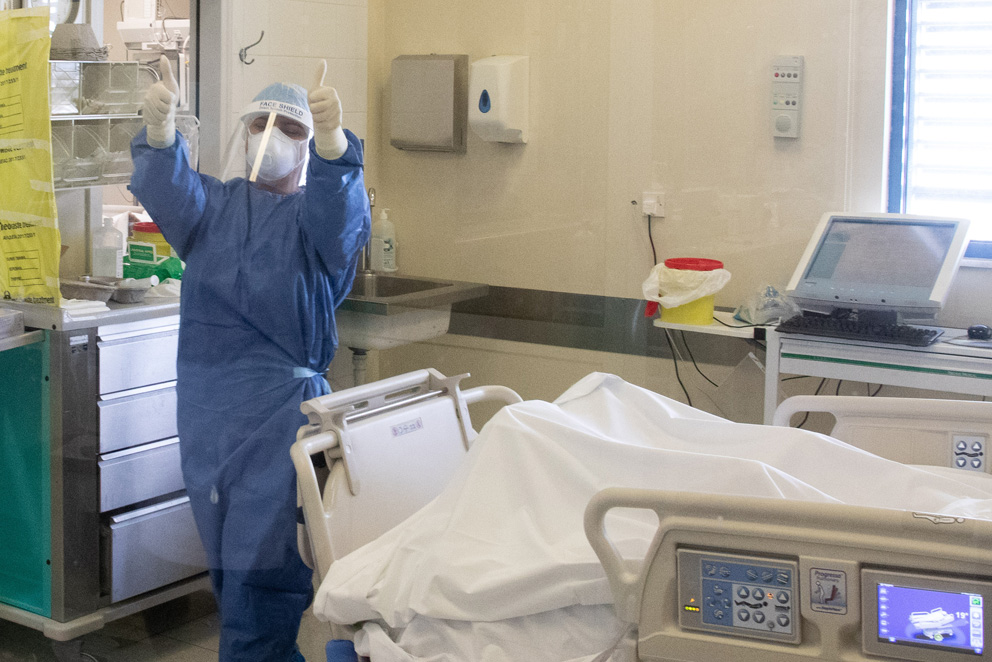Cyprus reported 107 new coronavirus cases on Thursday, following a week of highs and lows that saw daily infections drop below 100 on Tuesday to 81, a long way from the record 907 on December 29.
At the same time, the health ministry said that one person died of COVID-19, a 79 year old woman with underlying health issues, raising the death toll since the pandemic started to 228, with February so far accounting for 27 deaths.
December and January remained the deadliest months on record with 76 each. Of these, 153 were men (67%) and 75 women, with an average age of 79 years.
The health ministry said that the number of patients being treated for COVID-19 was unchanged from the day before at 81 and the same number of 21 in a critical state.
Some 25,555 PCR and rapid tests were conducted on Thursday with 107 new cases of SARS-CoV-2 diagnosed, raising the total infections since last March to 32,935.
In all, 25 positive cases were identified through contact tracing of earlier infections, and a further 58 from private rapid tests and the free national programme.
Of these, 37 were in Limassol, 16 in Nicosia and one in Larnaca.
Samples taken from 466 residents and workers at old people’s homes, all returned negative, as did 235 in special schools, 294 among soldiers serving in the National Guard and 165 at the Mesogi industrial park.
Two samples taken from 325 workers at the Ayios Athanasios industrial zone near Limassol were positive for COVID-19.
Trying to avoid third wave
With the rate of new infections gradually dropping, a leading virologist warned earlier on Thursday that Cyprus still faces the risk of a third wave of coronavirus, but the challenge is to avoid it by preventing widespread transmission of COVID-19 mutant strains.
Government advisor Dr Peter Karayiannis said, “the risk is there for a third wave, of course. What causes uncertainty is the possibility of the spread of mutant strains.”
“We see what happened to other European countries. To avoid the third wave, we have to limit the domestic transmission of the virus. So, it is up to us to avoid it.”
One of the government’s main strategies to control the virus is mass antigen rapid tests for the workforce.
Karayiannis said the number of coronavirus cases is encouraging, although they went up again on Wednesday 121 from double digits the day before.
“We are in the second week after the relaxation of (lockdown) measures and by the end of this week, or beginning of next week, we should see if there was a problem due to these relaxations.”
Retail shops and primary schools have reopened as the first step in easing lockdown imposed on January 10, but a curfew and restricted movement remain while hospitality venues are shut.
“Depending on the epidemiological picture, we should be able to proceed to further relaxation of measures soon,” Karayiannis said, adding that the situation will normalise towards the spring and summer months when the weather will allow people to avoid indoor spaces.










